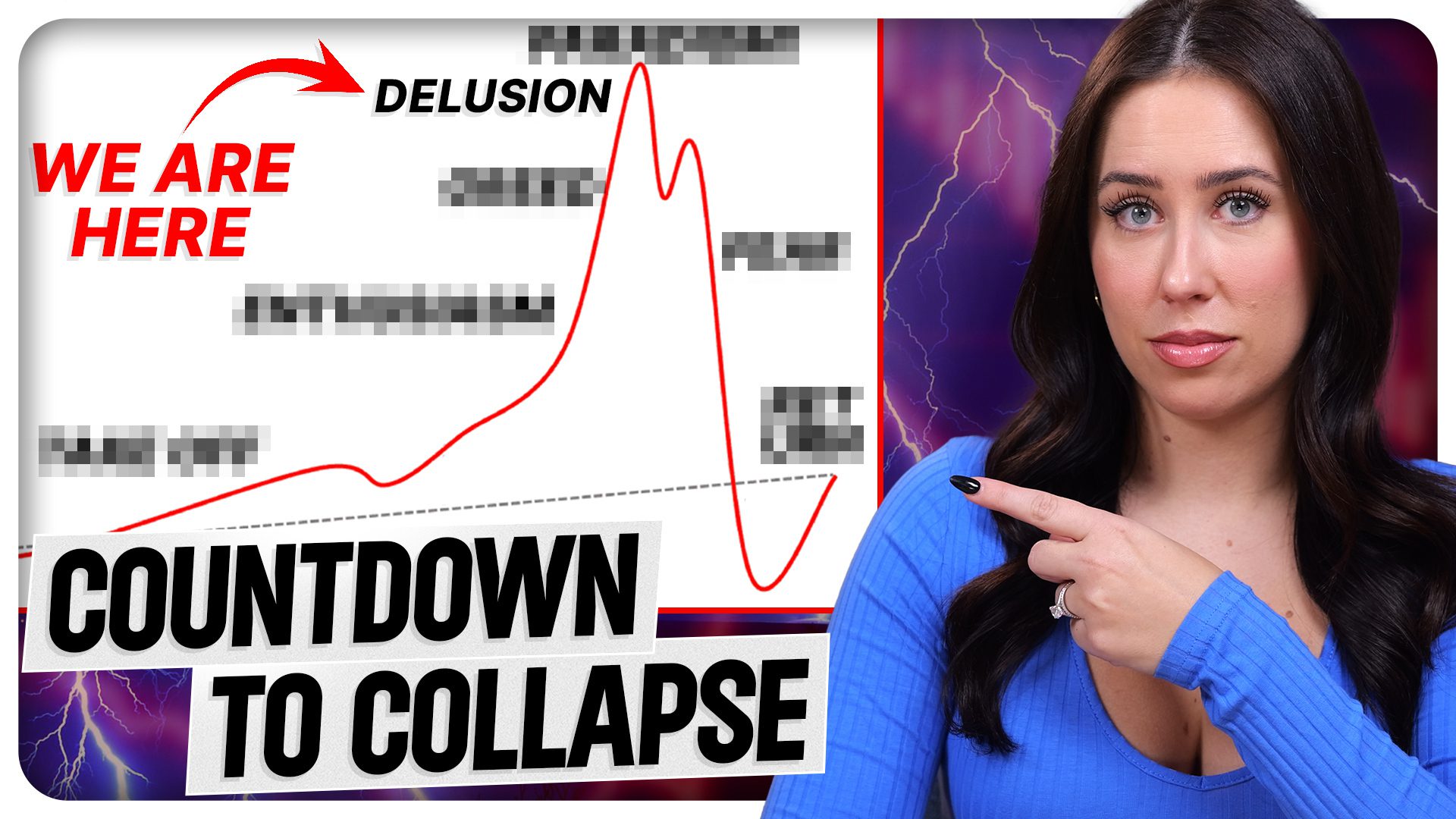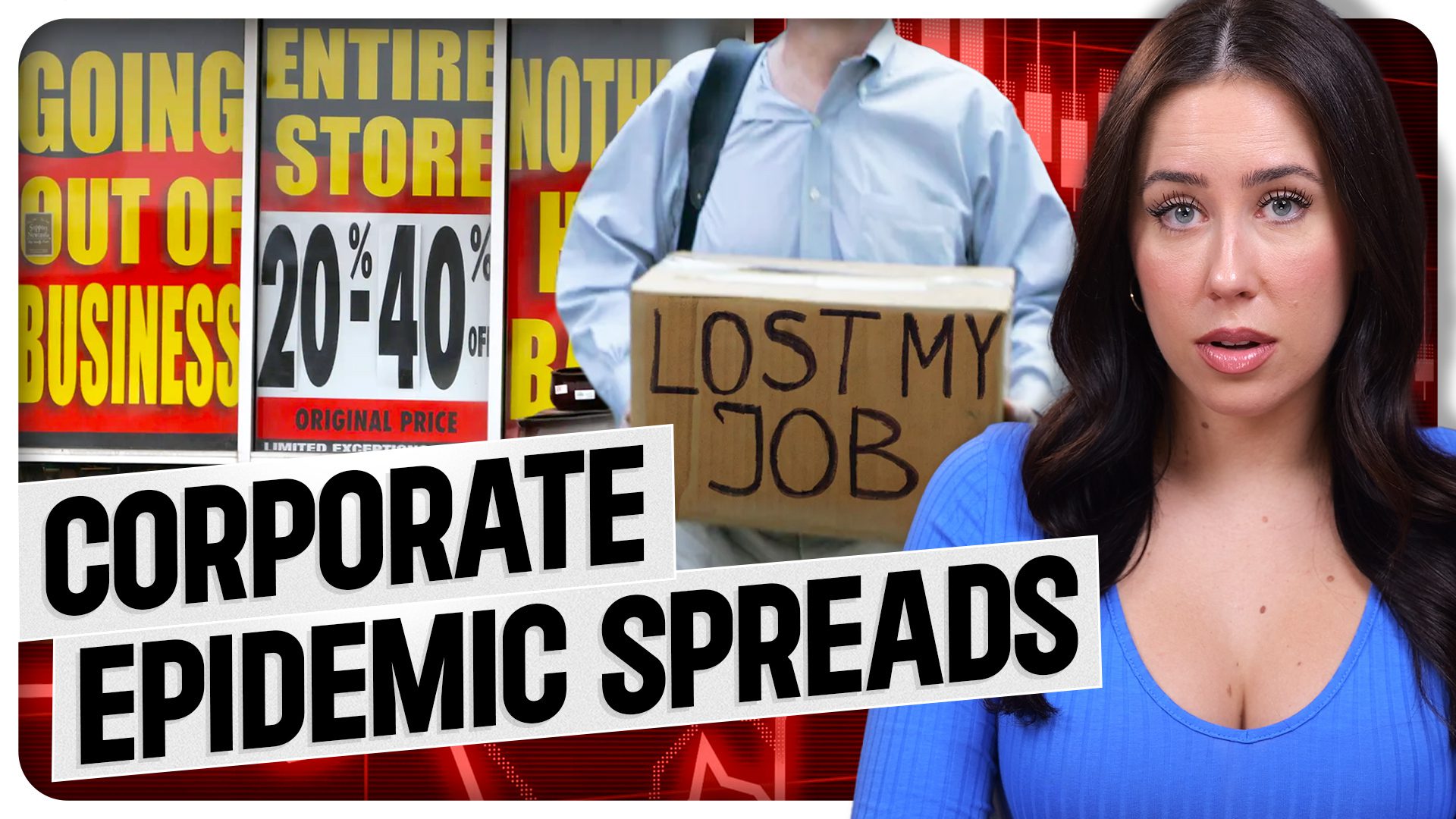Banking Disaster, Mortgages, Employment Data Debunked & Everything Else You Missed

In a world overwhelmed by distractions and headlines, Taylor Kenney uncovers the real stories that often evade our attention. Challenge the mainstream narratives, and empower yourself with knowledge. Don’t miss out.
CHAPTERS:
0:00 Staying Informed
0:51 Number Five
2:11 Number Four
3:43 Number Three
4:42 Number Two
6:17 Number One
TRANSCRIPT FROM VIDEO:
Do you ever feel like there’s so much news and so much going on that you’re missing the real story? Well, you’re not alone. We are bombarded with distractions and 24 hour news cycle that makes it difficult to read between the lines and see the red flags that are showing us what’s actually happening behind the scenes. The headlines might all say we’re preparing for a soft landing, that the economy is looking good, unemployment is down, and that stocks are up, but what’s really happening in the background?
Hi everyone. I’m Taylor Kenny with ITM Trading, and today we’re going to look at five things that you should be aware of that happened this week, starting with the toughest to miss and ending with things that aren’t even being covered in the news, how they impact you, what story they tell and why.
Starting off with number five, the United States Debt soars.
Now this might feel like old news. We get it. We have a debt problem, but what is new news? And what’s shocking is the lack of reporting on how quickly this debt problem is worsening. In the last two weeks alone, the United States has added over $400 billion to its debt. This week, multiple reports and articles came out that all got lost in the shuffle, the first being that the United States is now spending more on paying off its debt interest than it is on national defense. The next article being that on average it’s estimated that the United States will continue at a pace of adding $5 billion per day to its existing debt, and who knows if that will remain steady or if that will go up. And the third that was most concerning to me is that there are now predictive models showing that we are nearing the tipping point for our national debt.
What I mean by the tipping point is that it is now visible where the United States would hit the point where no future tax increases or spending cuts would make a difference, and that default would be eminent. Now, the model predicts 20 years, but that’s if everything goes right and everything goes well. I don’t know about you, but I don’t have a good feeling about our government reigning in their debt anytime soon.
Number four, record breaking mortgage rates. Now, if you’re in the market to buy, I don’t need to tell you this. We all know that mortgage rates are high, but this week we reached an average of almost 8% a rate that has not been seen since 2000. And mind you, this rate is continuing to climb even without the Fed increasing interest rates. These rates are not solely dependent on rate hikes by the Fed. There are actually a number of factors involved here, such as inflation employment, which we’ll get to in a second, as well as uncertainty about the US government, the economy, and what’s coming next. New home mortgage demand is also at its lowest rate in almost three decades this past week. New applications are down 22% from this same week last year, but home values continue to rise. How is this possible? People who purchased homes when interest rates were lower are holding on tight and are a little bit stuck because they are not trying to jump ship to go for an average of 8%. So what does this mean for you? Well, we’ve seen it before. When home prices rise to an unsustainable level, eventually those prices have to go down. Now in the news, they’re saying that this will be a soft deflation, but I don’t know about you. I question a soft deflation and wonder instead if it will be a pop where Americans are going to owe more on their homes than the home value is worth. And we understand, of course what that would mean for the economy.
Number three, oil prices pop with more to come violence in the Middle East. This past week has resulted in a quick jump in oil prices and concerns that there could be long-term increases to come contrary to some beliefs. It’s not because a direct reduction in oil supply has happened, but more so because concerns about what could happen if the violence continues turmoil would have an effect on countries such as Iran, which would have in turn an effect on the oil market as a whole. This week there’s been talk of sanctions from US lawmakers, as well as other on ground barriers that we’re not even aware of yet. Now, I know oil is not the focus of what’s going on there. This is strictly speaking from an educational and factual standpoint as it would pertain to the economy outside of hurting you at the pump. A rise in oil, especially sustained one or significant jump will of course have multiple impacts. It would be viewed as inflationary. It would hurt consumer spending and overall would bode poorly for the economy.
Number two, there are a record breaking number of people who are currently holding two or more full-time jobs. This week, the job market headlines were all good news. September report was released. We created twice, almost three times the amount of jobs that we had estimated. This is a surefire sign that everything is good, that the job market is strong and that you have nothing to worry about. But another statistic was released this month, which has somehow not been widely reported on, but it actually shows that there’s a record breaking number of people who are holding two or more full-time jobs. So yes, more jobs are being created, but does that sound like a good economy to you? I mean, listen, I am no stranger to wanting to hustle and make some extra money, so more power to people. But at the same time, you have to pause and wonder why now? Why is it record breaking that so many people are having multiple jobs? What does that say about the real consumer power and resilience? Is the consumer strong or is the consumer in pain? Listen, employment can’t stay the way it is forever, and wages are going to cool off. Credit is tightening. There is a domino effect that will be coming. Also, keep an eye on the almost half a million workers right now on strike when you’re thinking about these job creation reports. They do not take into account any employee who’s not being paid is not a job that they’re counting. So if someone’s on strike and they come back the next month, those numbers could be different than what’s happening in reality. Something to keep an eye on for the rest of the year.
And this brings us to the number one thing that you might’ve missed this past week, which is a banking disaster in Japan. There is a software glitch that prohibits the transfer of money from banks nationwide throughout Japan. Yes, you heard me correctly. 11 different banks, including regional banks and JP Morgan Chase were affected by a software glitch that has been going on now for 48 hours and counting. During this time, the banks have had to stop accepting new transfers and have been scrambling to figure out a way to complete the already 5 million transfers that were submitted or in the works before this glitch occurred. Imagine waiting for your paycheck or trying to access your money and being told that you don’t have access to any of your money because in fact, there’s been a glitch. We don’t know what it is. We don’t know when it’s gonna be fixed, but in the meantime, everything is frozen and there’s nothing you can do about it.
As of the time I’m recording this, like I said, this has been going on for about two days. By the time you watch this video, it might’ve been fixed, but that’s not what’s important here. This time it was two days, maybe three days a week, a month. What happens when it’s long term? How long could you go for without access to your money? What if the next time it’s not Japan, but it’s the United States?
The takeaway here is that the closer you move to a cashless society, the higher the risk is. A glitch is a perfect example. Mysterious unknown glitch, something intentional, I don’t know. All I know is that this is the risk that you sign up for when you put all of the power in someone else’s hands. Now, these five items that I wanted to make sure that you were aware of all were in the news this week. You might’ve seen them, you might’ve read about them or you might’ve missed them completely. And I think we both know that there’s a reason why, because when you hear about these different articles and these different happenings and reports coming out together, do you still think that this sounds like a solid and resilient economy? Do you think that this sounds like a soft landing or that there is not a recession or a crash in sight? I’ll let you draw your own conclusions, but all of this really tells me two things. The first being that anything that is not being covered properly in the news or that you have to dig to find means that you should probably be paying even more attention to it.
And the second thing is, is that it’s important to make sure that you have your wealth protected outside of the system. So to make sure that this news is being spread, because again, we know that there’s strength in numbers, make sure that you’re sharing this with your loved ones. If you’re not already subscribed, click that subscribe button like this video. Help spread the word so that we can make sure that more people are educated as to what’s going on. Education is key. So if you want to learn even more, make sure to also click that link below and get a strategy call in place today while there’s still time, so that you’re not looking back one day and kicking yourself thinking, I wish I had done that sooner. As always, thank you so much for joining me. I’m Taylor Kenney with ITM Trading. Until next time.
SOURCES:
https://www.usatoday.com/story/money/2023/10/05/30-year-mortgage-rate-climbs/71068590007/
https://www.cbsnews.com/news/uaw-kaiser-permanente-strikes-health-care-casino-workers-detroit/
https://fiscaldata.treasury.gov/datasets/debt-to-the-penny/debt-to-the-penny
https://watcher.guru/news/us-government-debt-rose-by-1-2-billion-per-hour-for-the-past-19-days
https://fiscaldata.treasury.gov/datasets/debt-to-the-penny/debt-to-the-penny
https://finance.yahoo.com/news/america-now-paying-more-interest-113000593.html
https://fortune.com/2023/10/10/oil-crisis-israel-hamas-war-palestine-iran-united-states/
https://fred.stlouisfed.org/series/LNU02026631
https://mix93.com/vip-inside-story/?id=125763&category=tech-made-simple













